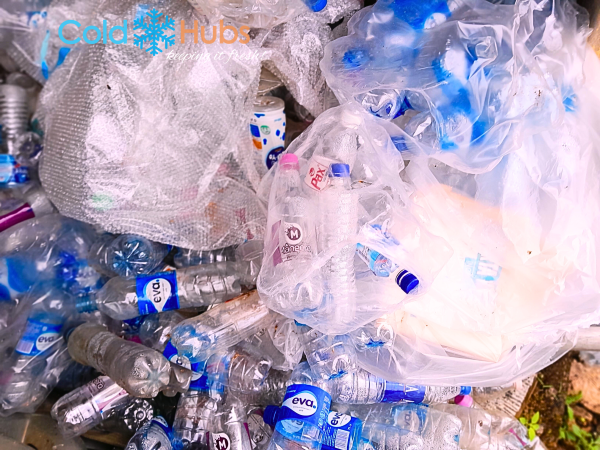Plastic waste is one of the pressing issues causing environmental pollution. The rapid increase in the production of disposable plastic waste is gradually overwhelming the ability of the globe to control it. In populated countries like Asia and Africa, garbage collection is inefficient.
According to the United Nations, every year more than 400 million tons of plastic are produced globally, and an estimated 19–23 million tons end up in lakes, rivers, and seas. However, less than 10% of the world’s annual plastic production is recycled. In Africa, which produces only 5% and consumes 4% of global plastic, growing populations and urbanization are driving an increase in single-use plastic, heightening environmental pollution and health threats.
Fighting the menace of plastic waste pollution has become a global environmental challenge. Plastic is made from petroleum, a non-renewable resource. This means that once we use up all the petroleum in the world, there will be no more plastic. And since plastic takes hundreds of years to break down, all the plastic that has ever been made is still in the environment and capable of affecting the land, waterways, ocean, food production, and ecosystem.
In this case, Nigeria ranks ninth globally among countries with the highest contributions to plastic pollution, with about 2.5 million metric tons of plastic waste produced annually. It is no secret that 80% of the plastic waste generated by industries and manufacturers is not recycled. Instead, a huge amount of it goes into the environment.
The World Health Organization (WHO) has revealed that burning plastic waste can release a chemical substance called dioxin. Dioxin is also linked to cancer, damage to the immune system, hormonal imbalance, and other reproductive and developmental problems. In February 2023, the Globocan statistics by the International Agency for Research on Cancer estimated that Nigeria had already recorded over 10,000 new cancer cases and had already lost 7,000 to this complex disease.
In Nigeria, plastic bottles and polythene bags are the major disposables in the country and are usually thrashed in public places such as markets, educational institutes, churches, and recreational centers, which indirectly pollute water bodies, drainage, and other aquatic environments.
Amidst this scenario, ColdHubs, with its emerging new chain of innovation, “Crate Production,” has a mission to mitigate the impact of plastic waste on the environment. As part of its commitment to social responsibility.
It will deploy a circular economy approach emphasizing the need for recycling and repurposing plastic materials by collecting post-consumer plastic waste and utilizing it as a primary resource for manufacturing high-quality plastic crates, thereby reducing the overall demand for virgin plastic materials.
As part of its 2024 vision, it is also drafting out strategies to initiate educational programs and awareness campaigns across Nigeria. By partnering with local authorities, schools, and non-governmental organizations, the company educates communities about the importance of responsible plastic usage, waste management, and the benefits of recycling.

